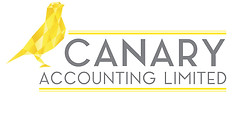2019/20 Tax year end planning
- Ruth Chettle

- Mar 2, 2020
- 3 min read
With the 2019/20 tax year end just over a month away I thought it would be useful to look at some of the planning opportunities to consider for you to maximise your allowances.

MARRIED COUPLES:
If you are married or in a civil partnership, you may be able to save money by reviewing your finances as a couple to make sure that you are using both spouses tax allowances. This could be a good idea if one spouse pays tax at a lower rate than the other.
If either you or your spouse (husband, wife or civil partner) earn less than £12,500 and the other spouse is a basic rate taxpayer (i.e. earns less than £50,000) you may be able to claim the marriage allowance. The lower earning spouse can transfer up to £1,250 of their unused personal allowance to their spouse saving tax of £250 for this tax year.
EARNINGS:
If either you or your spouse earn over £50,000 and receive child benefit then you may be subject to the ‘high income child benefit charge’. If you are subject to the ‘high income child benefit charge’ then the person earning over £50,000 will need to complete a Self Assessment Tax Return and repay some or all of the child benefit received.
If you earn over £100,000 you will start losing your personal allowance. You lose £1 for every £2 over £100,000. So, if you earn over £123,000 you will have no personal allowance. The loss of the personal allowance gives an effective tax rate of 60%. If this applies to you, you are also required to complete a Self Assessment Tax Return.
To minimise the effect of these you could consider negotiating a higher pension contribution from your employer instead of taking salary or a bonus or you could consider making personal pension contributions (but may be impacted by the below).
PENSIONS:
In order to maximise your pension saving you may wish to fully utilise your allowance.
There is a pension annual allowance of £40,000 for 2019/20. Unused allowances can be carried forward but only from the 3 previous years.
If you are a high earner then you may be effected by the tapered annual allowance which means the annual allowance of £40,000 can be restricted to £10,000.
If you make contributions in excess of your allowances there may be a charge so it is definitely worthwhile checking beforehand with your Independent Financial Adviser.
(I will be looking at pensions in a little more detail on Thursday 5th March on our Facebook page)
SAVINGS:
Up to £1,000 of bank interest is free for basic taxpayers. This is reduced to £500 for higher rate taxpayers and £nil for additional rate taxpayers. For savings that generate interest above these amounts, interest can still be paid tax free from ISA accounts.
You can invest up to £20,000 in the 2019/20 tax year in a Cash ISA and/or Stocks and Shares ISA.
(I will be looking at ISAs in a little more detail on Wednesday 4th March on our Facebook page)
CAPITAL GAINS:
Everyone has an annual Capital Gains exemption of £12,000. It is a use it or lose it allowance.
So you may wish to split larger liabilities over two tax years (i.e. if you sell a portfolio of shares).
Transfers between spouses (i.e. husband/wife/civil partner) are tax free so transferring part of an asset to your spouse before selling can make use of two Capital Gains exemptions.
INHERITANCE TAX:
Make sure you utilise your IHT gifting exemption of £3,000 for 2019/20.
In addition to the above you can also give away the following each tax year without IHT implications:
wedding or civil ceremony gifts of up to £1,000 per person (£2,500 for a grandchild or great-grandchild, £5,000 for a child)
normal gifts out of your income, for example Christmas or birthday presents - you must be able to maintain your standard of living after making the gift
payments to help with another person’s living costs, such as an elderly relative or a child under 18
gifts to charities and political parties
As with all types of tax planning the outcome will depend on your individual circumstances to how relevant or effective these planning points may be. It is worth speaking to your accountant and/or your Independent Financial Adviser before making any decisions.




Comments